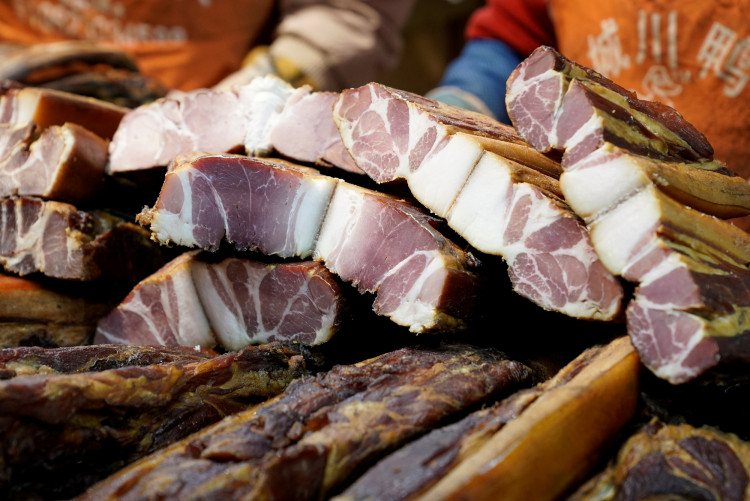China is ramping up its efforts to control the prices of food and non-food items to ensure consumption stability. The country's Ministry of Commerce announced on Monday that it will be accelerating efforts to gather more goods and release additional reserves of agricultural products into the market. The ministry also vowed to encourage further innovation of commercial enterprises to better equip them to meet market demand.
The decision to ramp up efforts to stabilize price came as China's consumer price index reached high levels in January, exceeding initial analysts' estimates. Official data showed that the country's CPI surged by 5.4 percent year-on-year. According to the data, the majority of the surge was caused by the continually rising prices of pork, which had been exacerbated by the demand during the Lunar New Year holidays and the decrease in supply due to the recent viral epidemic.
Chinese officials have revealed that they have so far released over 100,000 metric tons of frozen pork from the national reserve into the markets. The ministry hopes that the additional supply would help stall further pork price increases. Last month, the price of pork soared to over 116 percent, partly due to the expected high demand for the country's Lunar New Year holidays.
As for other food products, the ministry revealed that it has allotted around 47,000 metric tons of vegetables to different markets. This included allotments to areas with particularly high prices, including Northwest China's Ningxia Hui autonomous region and areas within the Shaanxi province.
Authorities and regulators are also reportedly working diligently to crack down on price speculation and the illegal hoarding of goods. Some businesses do intentionally hold on to stocks in anticipation of further price increases to boost their profit margins. Officials are working hard to address these issues by conduction investigations and operations.
The Ministry of Commerce also revealed plans to minimize the impact of the increasing prices by providing added support to consumer goods retailers, particularly supermarkets, wholesale stores, convenience stores, and community grocery markets. The ministry aims to have the businesses operate as efficiently as possible to meet the country's exceeding demand.
The recent spread of the novel coronavirus has also caused some hesitation by business owners in resuming business after the holidays. The ministry stated that it will do everything it can to ensure that all of the retailers get back to business as soon as possible. According to the ministry's department of market system development, at least 92 percent of the supermarkets in the mid to high-tier cities are back in operation.






